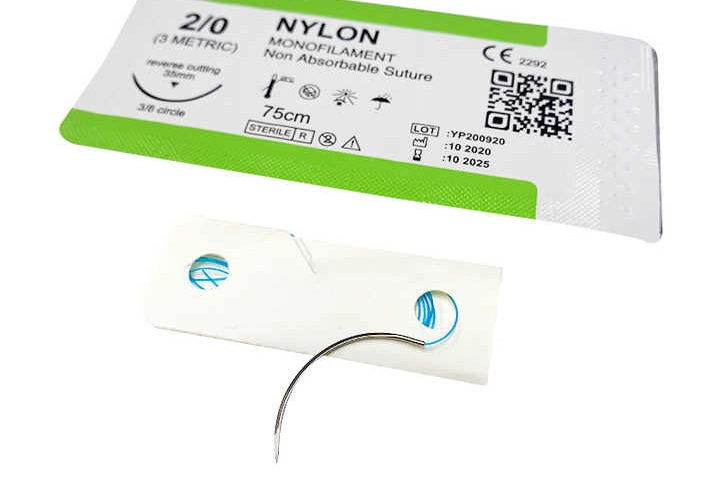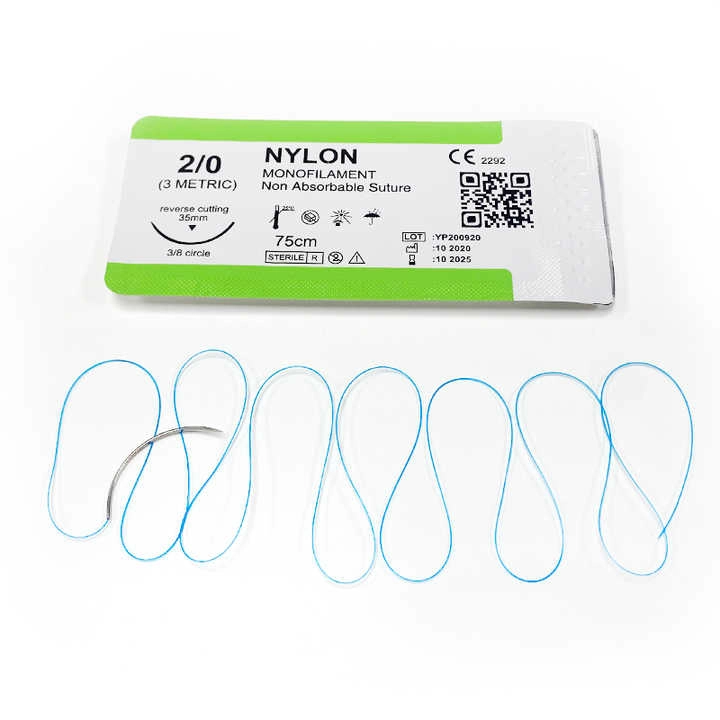
Eye surgeries need mad skills, rock-steady hands, and gear that doesn’t cause drama. Sutures are a huge deal for nailing these operations. Among all the choices, nylon sutures are the ones eye doctors totally dig. They’ve got some sweet traits that make them perfect for fiddly eye jobs.
What Are Nylon Sutures?
Nylon sutures are fake threads, either one string or a few twisted up, made from polyamide junk. They’re a big deal in medical stuff because they’re tough, last forever, and don’t tick off the body. These bad boys don’t melt away inside you. A doc’s gotta yank them out later. They come in all sorts of shapes and sizes, so surgeons can grab the right one for whatever they’re doing.
Why Nylon Sutures Are So Dope for Eye Surgery
Nylon suture services have a ton of cool perks that make eye surgeons go wild for them.
Built Like a Tank
Nylon sutures are stupid strong. They can take a beating without snapping during or after. That’s key in eye surgeries, where tissues are crazy delicate and need stitches that hold tight to heal up nice. They don’t wimp out, so wounds stay shut.
Chill on the Tissues
Nobody wants surgery stirring up trouble in their body. Nylon sutures are super chill with eye tissues, barely making them puffy. This keeps stuff like infections or gnarly scars from messing with your eyesight or slowing things down. The smooth ones glide through like it’s no biggie when you stick them in or pull them out.
Crazy Precise and Easy to Use
Eye surgeries need ninja-level precision since everything’s so teeny and touchy. Nylon sutures let surgeons nail the exact spot and tie knots that don’t budge. Their slick vibe makes them slide through tissues without wrecking anything. They’re bendy, so docs can get the tension just perfect for sealing wounds.
Good for Pretty Much Everything
Nylon sutures are like duct tape for eye surgery. They’re awesome for stuff like cataracts, swapping corneas, fixing eye leaks, or tidying up eyelids. That makes them a must for docs juggling all kinds of fixes. They come in a bunch of sizes, so surgeons can pick what works best.
These perks—strength, chill factor, precision, and all-purpose vibe—make nylon sutures a total MVP in eye surgery.
Where Nylon Sutures Show Up in Eye Surgery
Corneal Swaps
Corneal swaps, or keratoplasty, are high-stakes delicate gigs. Nylon sutures are a go-to because they’re tough and don’t don’t bug your body. They’re strong, keeping keeping the new cornea locked down so it doesn’t slide around. Their slick surface makes stitching a cinch and helps healing with less scarring. Since they don’t vanish, they hang out until the doc pulls ‘em out.
Closing Up Cataract Cuts
Cataract surgery means tiny slices to ditch a cloudy lens and pop in a fresh one. Nylon sutures seal those cuts up tight to block leaks or bugs. They’re bendy, so surgeons can place ‘em dead-on. Their toughness keeps things locked while you heal. They’re also chill, so you’re less likely to have grief after.
Fixing Eye Leaks
Fixing a retinal leak is about gluing it back where it belongs. Nylon sutures help lock scleral buckles or other gear in place. Their strength keeps everything steady, helping the retina settle in. Their slick texture makes them easy during gnarly retinal jobs.
Eyelid and Eye Area Touch-Ups
Eyelid and eye-area surgeries often mean patching up delicate bits or rebuilding stuff. Nylon sutures rock because they close things up tight without roughing up the tissue. They work for all kinds of stitching, from basic to fancy. Their chill vibe helps folks heal fast with nicer-looking results.
Tricks for Using Nylon Sutures in Eye Surgery
Picking Sweet Needles
Grabbing the right needle is a biggie in eye surgery. Docs often pick spatulated needles with crazy fine tips to poke through delicate eye bits without jacking them up. Curved ones make it easier to wiggle around tight spots near the eye.
Tying Bomb-Proof Knots
Knots gotta stay locked to keep wounds shut while they heal. Docs usually go for square knots or surgeon’s knots with nylon sutures ‘cause they’re solid and won’t slip. Nailing the tension keeps things snug without squashing the tissue.
Handling and Sticking Them Right
Using nylon sutures takes some finesse to keep ‘em clean and ready. Docs should use teeny tools made for eye jobs to handle the suture like a pro. Spacing stitches nice and even with steady tension helps wounds heal like a champ.

Nylon sutures are straight-up awesome in eye surgery ‘cause they’re tough, crazy gentle, and work for a ton of stuff. That makes them a slam dunk for killer results with less hassle. For sweet medical gear like nylon sutures, hit up Medco for nylon sutures. They’re a solid crew with over 18 years in the game, with killer prices and fast shipping everywhere.
FAQ
Q: What makes nylon sutures a good choice for eye surgeries?
A: Nylon sutures are super strong, so they don’t break under pressure. They’re gentle on eye tissues, causing little irritation or scarring. They’re also easy for surgeons to handle, letting them stitch with precision. Plus, they work for lots of different eye procedures.
Q: Do nylon sutures cause pain or irritation in the eye?
A: No, they’re designed to be gentle. Nylon sutures cause very little swelling or irritation in eye tissues, which helps avoid issues like infections or scars that could affect vision. Their smooth surface also makes them comfortable during placement and removal.
Q: What kinds of eye surgeries use nylon sutures?
A: Nylon sutures are used in many eye surgeries, like corneal transplants (keratoplasty), cataract surgery, retinal detachment repairs, and eyelid or orbital surgeries. They’re versatile and can handle different stitching needs in these delicate procedures.
Q: How do nylon sutures help in corneal transplants?
A: In corneal transplants, nylon sutures hold the new cornea in place so it doesn’t shift. Their strength keeps the graft secure, and their smooth surface makes stitching easier, helping the eye heal with less scarring.



